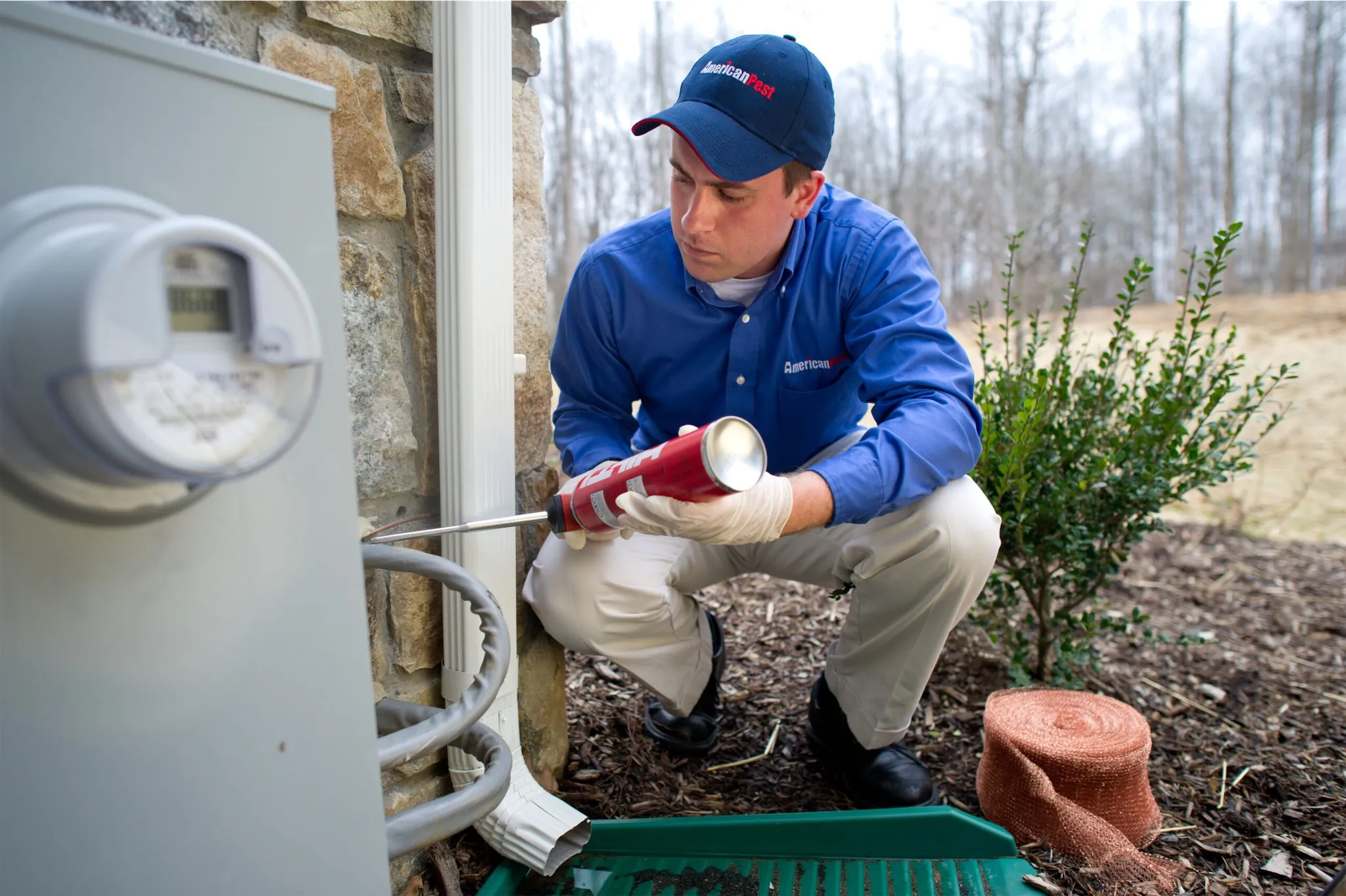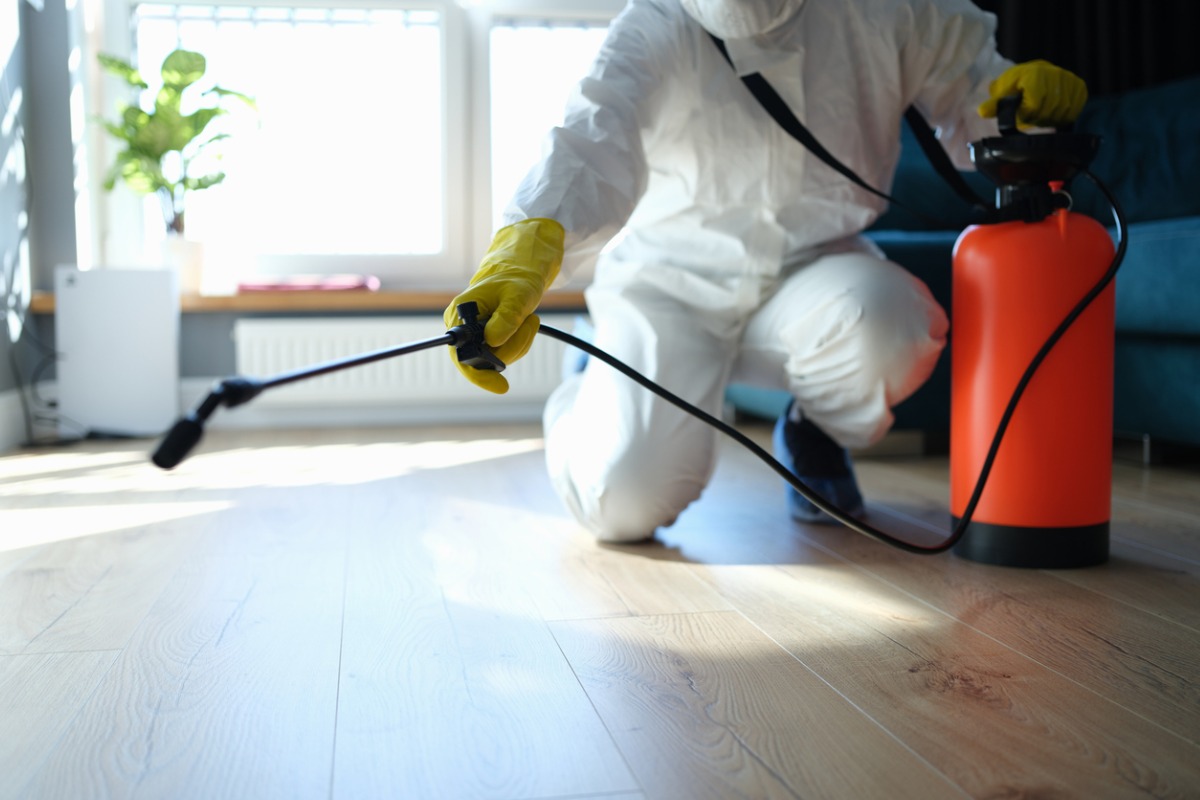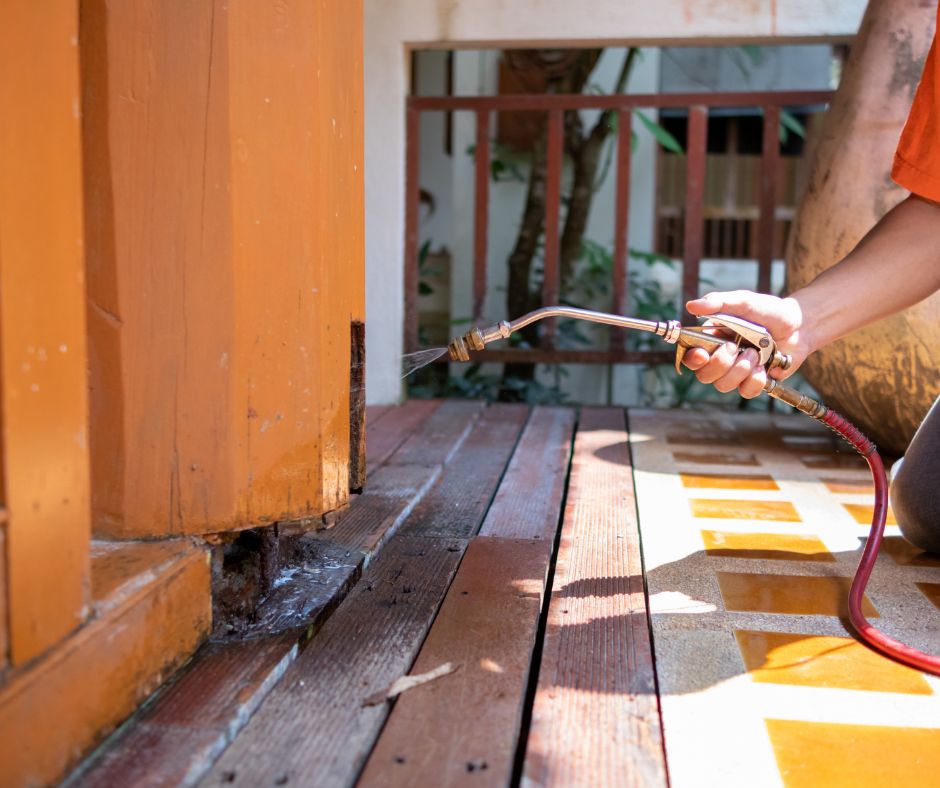Reliable Termite Treatment Port Charlotte to Defend Your Home
Reveal the Significance of Bug Control in Maintaining a Healthy And Balanced Atmosphere and Therapy Techniques

The Function of Insects in Ecosystems
Bugs, usually checked out solely as problems, play a complex function in ecosystems that is important for maintaining environmental equilibrium. They contribute substantially to various environmental procedures, including pollination, nutrient biking, and pest control. Lots of insect varieties, such as and butterflies, are necessary pollinators for a large variety of plants, which in turn supports biodiversity and food manufacturing.
Furthermore, pests function as target for various killers, producing a crucial web link in food internet. This interdependence ensures the survival of numerous species and aids control populations within communities (Termite treatment Port Charlotte). Decomposer parasites, such as particular beetles and fungi, are important in damaging down natural matter, hence enriching dirt and helping with vitamins and mineral recycling.
Alternatively, while insects can be useful, their overpopulation or intrusion into non-native atmospheres might interfere with these environmental functions. This intricacy emphasizes the value of understanding bug characteristics, as efficient insect monitoring strategies have to take into consideration both their eco-friendly roles and prospective effect on human activities. Balancing pest presence while decreasing harm is necessary for maintaining the honesty of communities and making certain farming efficiency.
Wellness Dangers Related To Pests
The presence of pests in different settings prolongs beyond their ecological functions, as they additionally position considerable wellness risks to animals and people. Lots of bugs, including rodents, pests, and parasites, are carriers of illness that can have significant health and wellness effects. Rodents are understood to send hantavirus and leptospirosis, both of which can lead to serious respiratory and kidney problems, specifically.
Pests such as ticks and insects are notorious for spreading out vector-borne diseases like jungle fever, dengue fever, and Lyme illness. These ailments can lead to high morbidity and death rates, particularly in susceptible populaces. In addition, pests like roaches and insects can aggravate allergies and asthma, adding to respiratory troubles in people, specifically those with pre-existing problems.
Additionally, the presence of parasites can lead to mental anxiety and pain, affecting general wellness. Contamination of food and surface areas by insect droppings and continues to be can bring about foodborne diseases, highlighting the importance of maintaining hygienic problems. Consequently, recognizing the health risks connected with bugs is crucial in recognizing the requirement of effective parasite management strategies to secure human and animal health and wellness.

Advantages of Effective Pest Control
Effective insect control is vital for maintaining a risk-free and healthy and balanced atmosphere, as it consistently minimizes the numerous risks associated with parasite problems. One of the primary advantages of reliable bug management is the decrease of health and wellness threats.
Furthermore, effective pest control safeguards building and frameworks from damages. Many pests, like termites and woodworker ants, can trigger comprehensive structural damage that may need costly fixings. By proactively managing these invasions, home owners and companies can secure their financial investments.
One more substantial benefit is the improvement of total lifestyle. A pest-free atmosphere adds to mental well-being and minimizes tension connected with infestations. Efficient insect control promotes a more secure environment for pet dogs and children, ensuring that homes remain sanctuaries totally free from hazardous chemicals and disease-causing organisms.
Usual Insect Control Techniques

In the realm of parasite monitoring, numerous methods are utilized to fight whats pest control problems properly. These techniques can be generally classified right into 3 major approaches: cultural, mechanical, and chemical controls.
Social control includes changing practices to decrease parasite survival, establishment, and reproduction. This may include plant turning, proper hygiene, and environment control, which collectively create a setting much less conducive to pest expansion.
Mechanical control uses physical approaches to eliminate parasites (Termite treatment Port Charlotte). Techniques such as catches, obstacles, and vacuums are typically used to straight remove pests from a location. This technique is specifically reliable for managing rodents and bugs without the usage of harmful chemicals
Chemical control involves the application of pesticides to manage parasites. These substances can be classified about his into fungicides, insecticides, and herbicides, each targeting particular sorts of bugs. It is important to utilize these chemicals deliberately, sticking to safety and security standards and regulations to decrease possible injury to non-target varieties and the atmosphere.
Each pest control method has its benefits and limitations, and often, an integrated strategy incorporating numerous approaches yields the very best outcomes in keeping a pest-free setting.
Sustainable Pest Monitoring Practices
Sustainable parasite administration practices encompass a variety of methods developed to reduce ecological impact while effectively regulating bug populations. These methods prioritize making use of environmentally friendly techniques over chemical pesticides, thereby decreasing the danger of harm to non-target varieties, including valuable bugs, wild animals, and people.
Integrated Insect Monitoring (IPM) is a cornerstone of lasting practices, incorporating organic, cultural, mechanical, and chemical methods to take care of insects. For example, biological control includes presenting natural killers or parasites to subdue bug populations. Social methods, such as plant rotation and polyculture, interfere with pest life cycles and boost environment strength.
Mechanical methods, such as obstacles or traps, can successfully prevent insect accessibility without chemical intervention. Additionally, preserving healthy and balanced ecological communities through correct soil monitoring, plant health, and biodiversity can naturally alleviate pest issues.
Education and understanding are important elements, empowering people and neighborhoods to recognize insect hazards early and implement safety nets. Termite treatment Port Charlotte. By cultivating a holistic strategy that balances parasite control with ecological integrity, sustainable insect monitoring techniques not just safeguard structures and crops yet additionally contribute to a healthier atmosphere for future generations
Verdict

Understanding the health and wellness risks linked with bugs is vital in identifying the requirement of effective parasite management methods to safeguard animal and human wellness.
Reliable bug control is necessary for preserving a secure and healthy setting, as it regularly minimizes the various dangers connected with insect infestations.Integrated Parasite Administration (IPM) is a keystone of sustainable methods, combining biological, social, mechanical, and chemical tactics to handle pests. By comprehending the function of bugs, identifying involved health threats, and utilizing diverse treatment strategies, a lasting method to pest administration can read this be attained. Integrated Bug Administration (IPM) highlights an all natural approach that mitigates injury to useful organisms while properly controlling insect populaces.